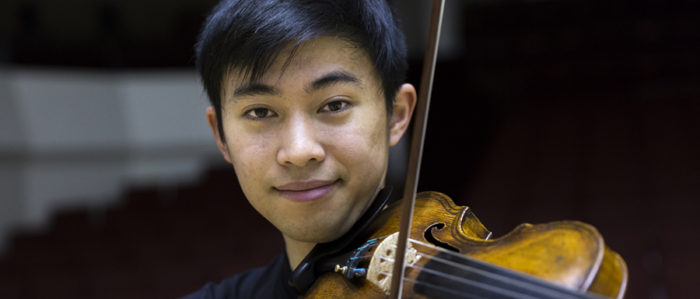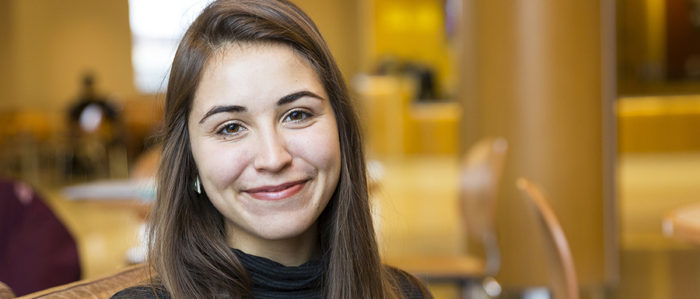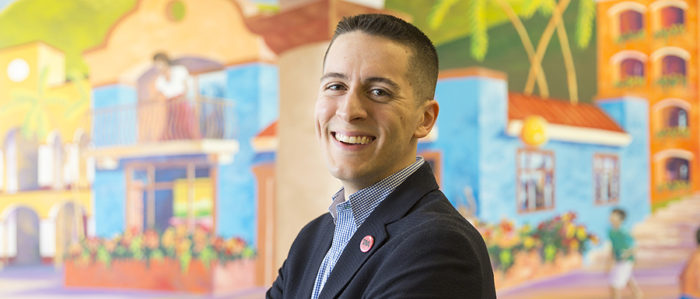Jamie Dawson grew up on the songs of Lauryn Hill and Kendrick Lamar and the words of Zora Neale Hurston, Maya Angelou, Pablo Neruda and Sonia Sanchez. But it was the music of Mahalia Jackson that caught her attention at UW-Madison.
Dawson couldn’t believe she’d never known about the “Queen of Gospel” before taking an Afro-American Studies course. But the experience — of finding inspiration and expanding in knowledge — has become a hallmark of Dawson’s time at the university.
As a teenager in Tampa, Florida, Dawson developed an interest in psychology and a passion for spoken word. The latter was a major reason she came to UW-Madison, to participate in the renowned First Wave Spoken Word and Hip Hop Arts Learning Community, which draws artists and activists from across the country to live, study and create together.
Dawson arrived with a strong background in spoken word and singing, but soon expanded into recording, choreography, dance and playwriting. “They definitely all inform one another,” she says of the artistic pursuits.
Through a First Wave-focused First-Year Interest Group, she explored connections in physics, English, integrated arts and Afro-American Studies in a series of linked classes. She enjoyed the Afro-American Studies component — Hip Hop & American Contemporary Society — so much that she enrolled in additional courses and eventually decided to make it her second major, in addition to psychology.
A standout course was Craig Werner’s Soul Music and the Civil Rights Movement, which introduced Dawson to Mahalia Jackson and other artists of the era, and the power of their music.
“The things I took away most from the class were the connections between a people’s fight and the connection to expression through music and sound,” she says. “There was a unity and call and response relationship that existed. What it taught me the most is that as much as we love to call music entertainment, it really is a necessity that we use to express ourselves, report to our communities and to connect with others.”
Dawson’s ear now keenly picks up snippets of soul when they’re sampled in contemporary songs, and she’s hung on to homework from the class. “I still have a lot of the playlists on my phone,” she says.
As much as we love to call music entertainment, it really is a necessity that we use to express ourselves, report to our communities and to connect with others.
Last spring, Dawson was inducted into Phi Beta Kappa — a rare honor for a sophomore — in recognition for her work in the liberal arts and sciences.
Now as a junior, she continues to meld her interests as she plans for the future. She’s considering a career as a medical interpreter, and working to hone her Spanish skills, researching graduate school programs and job shadowing at UW Hospital.
“To me, it’s the opportunity to not only assure that people get the best care, but a chance to stand for ethics,” she says. “Everyone deserves a bridge to the best, most worry-free health care as possible.”
But wherever Dawson lands and whatever she does, she’ll bring with her a foundation rooted in connection and expression.
“I don’t have to be on a stage with lights to be doing something artistic,” she says.






